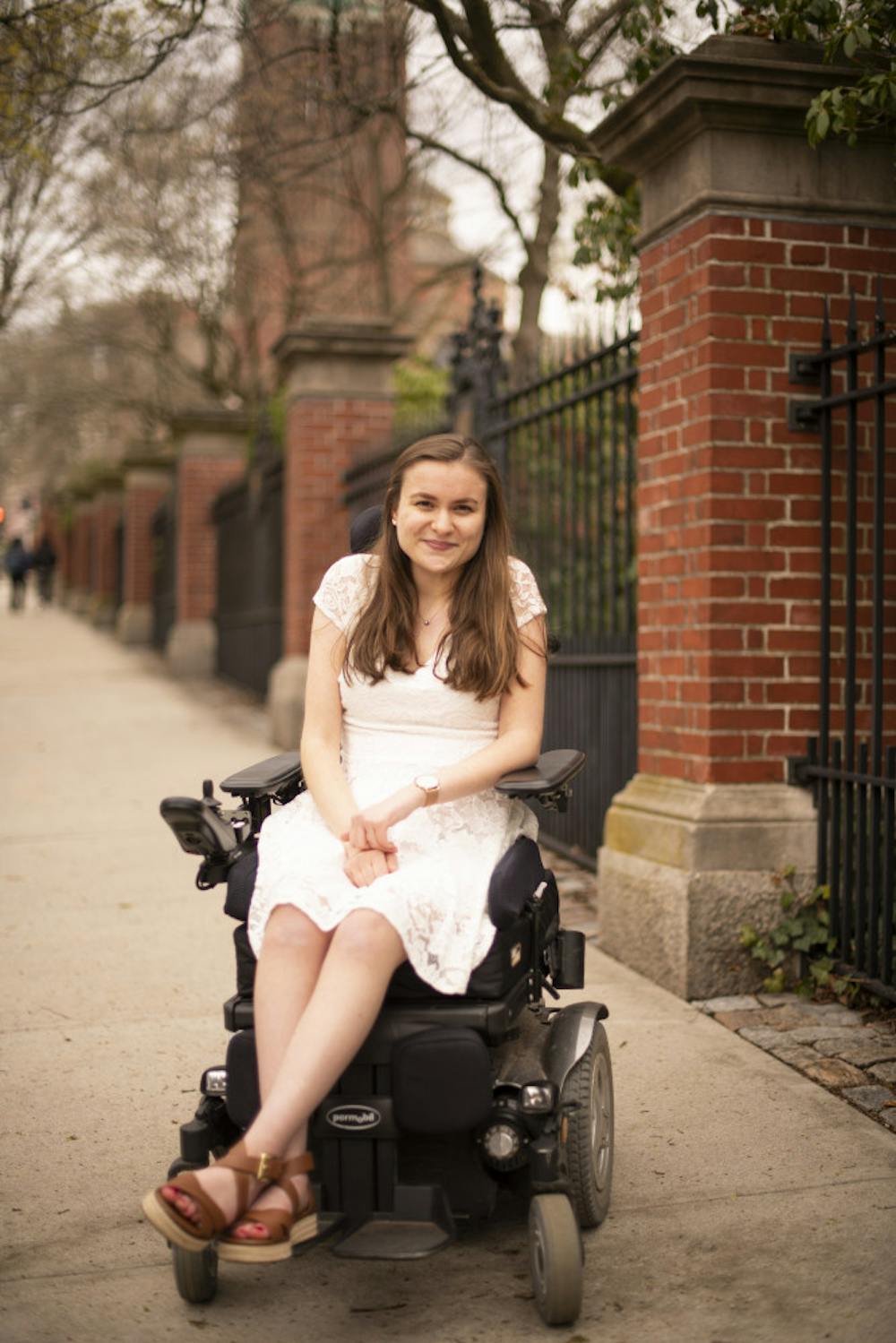When I first arrived on Brown’s campus the day of first-year move-in, I wasn’t all that different from any of my peers chaotically flooding the University gates. Like many of those around me, there was a large pit in the bottom of my stomach, which lodged itself there to remind me of my fear that I would never find my place here. Like many of the people whom I met that fall, a small worry lurked in the back of my head that I was behind already because I didn’t quite know where I wanted my academic studies to lead me. But in one critical way I was — and still am — far different from nearly anyone else around me: Instead of walking onto campus, I rolled.
This reality was one that had rarely phased me before arriving here. To be sure, I'd occasionally struggled with the emotional weight of what having muscular dystrophy stopped me from doing, just as I'd occasionally struggled with the shame that sometimes comes with that feeling of being different. But the confidence I had developed in the comfort and familiarity of home, a community of friends I’d had for years and platforms like speech and debate allowed me to feel like a normal individual whose everyday experiences were defined by everything but my use of a wheelchair. When I moved away to college, these critical pieces of my identity and existence did not move with me. With these bumpers no longer there to protect me, I felt — perhaps for the first time in my life — disabled.
During the fall of my freshman year, countless little moments left me feeling like I had been vaulted out of my comfortable existence into a world that was clearly not designed for people like me. At 18 years old — with the naive, quintessential first-year feeling that at Brown, I would be more in my element than ever before — this betrayal was jarring. And it was punctuated by a feeling of self-betrayal: Was I simply so naive that I couldn’t have expected or prepared myself for this? I asked myself this question after getting separated from groups throughout orientation when I realized the path we were taking wouldn’t work for me, and no one seemed eager to accompany me along a more inconvenient, yet accessible route. I asked myself this question as I showed up to new club meetings or interviews, only to find that stairs but no elevator awaited my arrival. Soon, I found myself feeling uncomfortable in new spaces, meeting new people, even if I could get through the front door without a hitch. Before Brown, I had never been shy or lacked confidence in social settings. It was unnerving to feel so ashamed and out of place, unable to shake the thought that my differences had forced a space between me and my peers so large that little could overcome it.
During my stay at home that winter break, the cloud of being disabled lifted and I felt just like me again. There was nothing especially accessible about my life in my hometown. But everything I did that break, from the exciting to the mundane, felt joyously effortless. The night before I was set to catch a red-eye back to Providence, my older sister and I engaged in our typical tradition of musing about life as the seasons change. At one point, I remember grasping at straws to try to explain to her the difference between my life at home and at college, only to come to the realization that my existence at Brown was far more inhibited by my mindset than by any physical or social barrier.
Reflecting back on my four years here, I’ve come to recognize that my Brown experience has largely been shaped by a painful but necessary journey toward identity-acceptance that I previously would have told you I had completed long ago. The journey has not always been easy; I have not always done the best job at staying the course. I’m not at the end of the road either. Re-training your mind and re-building your identity are necessarily lonely and trying tasks. And I would be lying if I told you the pandemic has not made them lonelier or even more trying.
But inclusive spaces like The Herald with wonderful souls who’ve made feel welcomed and valued; professors who have seen something in my intellect and aspirations and who have grown into my mentors and friends; and friends who have pushed me to open myself up to the world around me despite my doubts have all carried me closer to the finish line.
Looking toward the start of college, I eagerly anticipated four years of intellectual growth. Looking back on my four years, I am grateful it was more than I bargained for. The inclusivity of our social and physical landscapes will likely always need work — and making that happen shouldn’t only be up to people like me. But I will forever be grateful that my college experience was one that forced me to slow down and reconsider the integrity of the foundation that my sense of self and self-acceptance had been built on. And I will forever be grateful to the people and spaces at Brown that I’ve come to love over the years: You gave me the room and support to grow into this better version of myself. As we go out into the wider world, I can only hope that Brown has been that and more for those around me, too.





